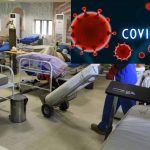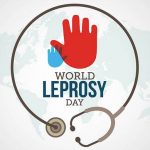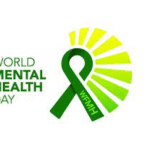Many Nigerians doubt the existence of coronavirus in the country but fear, misinformation and disinformation continue to fuel stigmatisation of COVID-19 survivors. In this report, Temitope Bademosi writes on the impact of fake news on the management of COVID-19 pandemic in Nigeria.
Fear. panic. anxiety. doubt, uncertainty… It is all about COVID-19. While the volume of information being shared about the virus is indeed overwhelming, it has culminated into a mix of viral posts, rumours, information distortion and fake news.
Several widely-shared posts on social media claim that COVID-19 does not exist in the country as well as misleading posts on the vaccines and claims about the state of COVID-19 survivors.
On a daily basis, updates from the social media accounts of the Nigeria Centre for Disease Control turn to some kind of controversial banter about the existence of COVID-19 and other issues surrounding it.
Tailored and advanced searches with the keywords show that fear, anxiety and doubt are mostly associated with COVID-19.
Some of these posts and comments were analyzed in a bid to do a sentiment analysis and results showed that doubt about the existence of the virus is a major barrier in the fight against COVID-19.
It is this same sentiment that is shared by word of mouth across local communities. There is a lot of skepticism about the existence of coronavirus and the vaccine in some quarters, despite the fact that the NCDC reports new infections daily.
As other variants of COVID-19 continue to emerge, many Nigerians continue to live in denial of its existence by disregarding safety guidelines and restrictions.
There are fears of a third wave of the pandemic in Nigeria and this apathy, if not tackled may threaten efforts to combat the virus, the Nigeria Centre for Disease Control (NCDC) has said.
Months down the line, I walk casually into the popular Mile 12 market in Lagos to purchase some foodstuff.
But only a few people are wearing masks and the crowd, there as usual, streaming into different sections of the market.
“Imagine that you take a COVID-19 test and your result comes back positive. Would you tell your friends and family members or would you keep it to yourself? I asked the frozen food seller.
“Forget it my sister, there is no COVID-19 in Nigeria. I cannot even contract the virus; it is not my portion”, he tells me casually.
“I have never even seen anyone with the virus and I honestly think that they are making up the figures and I will not take that vaccine”, another customer said, eager to contribute to the conversation.
“It is really sad that public distrust in government can extend to COVID-19 that has ravaged many people and even health workers worldwide and even in our own country, Nigeria. There are so many “doubting Thomases”, but many who have had a close shave know that it is what it is- a highly infectious disease that could be very fatal especially in the face of co-morbidities” says the secretary of the Nigerian Medical Association in Lagos state, Dr. Ime Okon.
The irony of this situation is the fact that while there is widespread disbelief and a set of conspiracy theories about the existence of COVID-19 and misleading information about the vaccine in Nigeria, stigmatisation of COVID-19 survivors fuelled by misinformation persists.
This is because it is still a relatively new disease and its realities are constantly emerging.
According to the World Health Organisation, the fear of the unknown drives stigma about the disease and can cause people to hide their illness.
Fear can also hold people back from seeking immediate health care or observing preventive measures.
De-stigmatizing COVID-19 survivors
At community level, a recurring pattern of fear occurs with a loss of trust in health services, in addition to limited access to health and safety information in poorer communities and stigmatizing attitudes making people not want to associate with a survivor of COVID-19.
Cultural beliefs play a big role in the widespread fears due to high infection risk, lack or inadequate access to the right information.
After a probably grueling experience with COVID-19, many survivors return to their families and communities and face stigmatisation and blame from their communities.
“I do not have problems with COVID-19 survivors but I hear that people who have recovered from COVID-19 virus can still transmit the virus so I would rather be safe than sorry”, a colleague tells me.
But the truth is that he has never met a COVID-19 patient or a COVID-19 survivor so he probably can’t predict how he would react if he meets either.
Surviving COVID-19 in Nigeria is different strokes for different folks. While some find it easy to re-integrate into the society, others are struggling mainly because of misinformation.
Hamzat Lawal is one of Nigeria’s foremost activist and a COVID-19 survivor.
“I thought I was going to die when I contracted the virus but after recovering from COVID-19, I still felt weak and dizzy but I wasn’t stigmatized at all maybe because I am a public figure and I didn’t hide my COVID-19 exposure. I even tweeted about it. No one really treated me badly post-COVID-19”, he said.
Months ago, Tamuno Sample* tested positive for COVID-19 and he made his status known to his colleagues.
“I experienced some form of stigmatization when I resumed at work after recovery. Many of my colleagues made it certain to keep a safe distance from me. They probably thought I was still infectious and I had to share my latest negative result to get them settled”, he said.
While Hamzat Lawal and Tamuno Sample* may have their own cases easy, it is the other side of the coin for Amaka Okorie* who tested positive for the virus in February 2021. She has since recovered but is still battling with its effects months later.
“I am COVID-19 negative but I get tired easily, I cough sometimes, I still can’t smell anything, my complexion is darker and I forget things rather easily. People avoid me because they think that I can still transmit the virus to them. This is really taking a toll on my mental health”.
Amaka Okorie* is no longer infectious but she is experiencing “Long COVID”, which refers to a condition where people continue to experience persistent symptoms of COVID-19 for longer than usual after initially contracting the virus.
She is now finding solace in many online support groups till she returns to her previous state of health as many people do not seem to understand Long COVID.
Is Long Covid contagious?
A social media user, replying to a post of the NCDC’s Facebook page advising against stigmatisation, claims that studies have shown that COVID-19 survivors, especially the ones living with Long-COVID are still contagious.
According to the U.S. Centers for Disease Control, once a person has COVID-19 symptoms, he or she is typically, no longer contagious, 10 days after the symptoms began. This is applicable to mild cases of the disease. Those who are immuno-compromised may be contagious for up to 20 days.
The World Health Organisation corroborates this, saying that infected people appear to be most contagious two days before they develop symptoms.
“Once the PCR test is negative, it means that there is no more virus that can be transmitted. The so-called “Long Covid” refers to the damage done to different organs and symptoms from the inflammatory effects of the disease caused by the virus” says Dr. Alero Roberts, the second vice chairman of the Association of Public Health Physicians and Senior Lecturer and a consultant at the Lagos University teaching Hospital (LUTH).
“After confirmatory tests come back negative, a survivor is no longer infectious. A survivor can only be infectious if he or she is re-infected with the disease,” an epidemiologist, Dr. Oladapo Asiyanbi said.
In order to understand some of the examples of stigma reported by COVID survivors, a questionnaire was administered to 10 survivors in a Facebook support group.
All ten of them reported that they were avoided by others and that they were discriminated against at their places of work or living.
Eight respondents were called names while seven of the ten respondents were blamed for getting or spreading the virus.
Six respondents claimed that their experience with coronavirus was undermined by others and two respondents reported hostility by medical staff.
So what are some of the negative perceptions that exist about COVID-19 survivors?
Eti-Osa local government area of Lagos state was one of the hotspots for COVID-19 during the early days.
I conducted a research on the perceptions about COVID-19 survivors among 50 respondents in this local government.
40 out of the 50 respondents feel that recovered COVID-19 patients did not take adequate preventive measures.
41 of the 50 respondents also feel that COVID-19 survivors can still transmit the virus.
Many COVID-19 survivors including those experiencing long COVID are struggling, and may need psycho-social support.
“Instead of celebrating the win over coronavirus, survivors begin to think, why did I contract this virus in the first instance? It is a negative feeling that could take them down and bring down their morale. Anything that affects the three most important states of our mental health- psychological, emotional and social states, should not be encouraged. Stigmatisation affects each and every of those three states”, Kunle Pelemo a mental health expert said.
As with HIV/AIDS and Ebola, the stigma associated with COVID-19 falls back to misinformation and tackling it can only make the war against COVID-19 better.
While the number of COVID-19 survivors is expected to rise, raising awareness on the plight of survivors, correcting false impressions about the virus, vaccines and promoting stigma reduction can help fight misinformation and encourage people to take precautions, empathize and treat survivors with respect and dignity.














